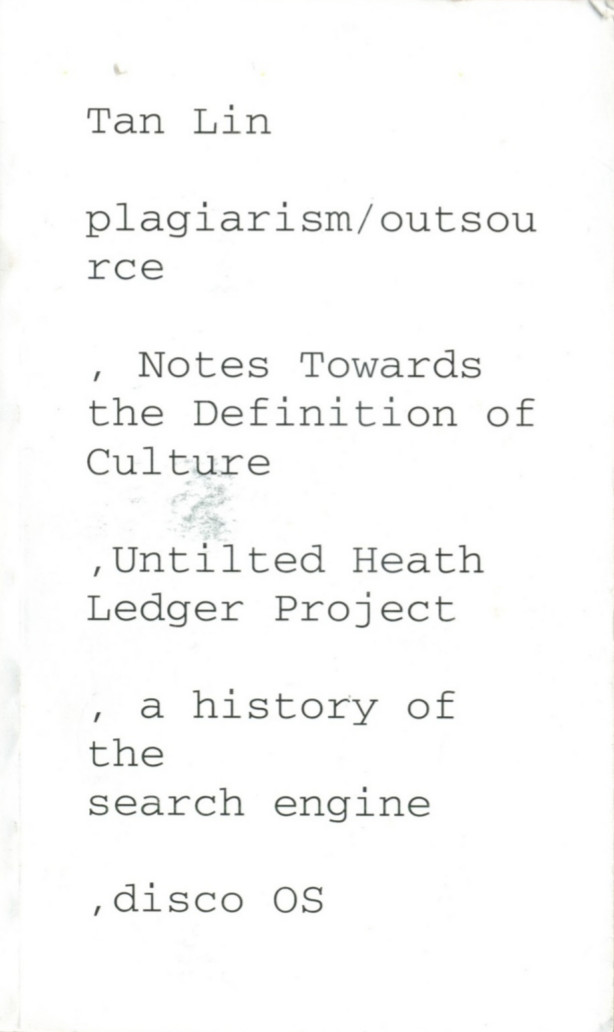Dennis Baron: A Better Pencil: Readers, Writers, and the Digital Revolution (2009)
Filed under book | Tags: · blogging, email, facebook, instant messaging, internet, language, literacy, myspace, reading, writing

“Computers, now the writer’s tool of choice, are still blamed by skeptics for a variety of ills, from speeding writing up to the point of recklessness, to complicating or trivializing the writing process, to destroying the English language itself.
A Better Pencil puts our complex, still-evolving hate-love relationship with computers and the internet into perspective, describing how the digital revolution influences our reading and writing practices, and how the latest technologies differ from what came before. The book explores our use of computers as writing tools in light of the history of communication technology, a history of how we love, fear, and actually use our writing technologies–not just computers, but also typewriters, pencils, and clay tablets. Dennis Baron shows that virtually all writing implements–and even writing itself–were greeted at first with anxiety and outrage: the printing press disrupted the “almost spiritual connection” between the writer and the page; the typewriter was “impersonal and noisy” and would “destroy the art of handwriting.” Both pencils and computers were created for tasks that had nothing to do with writing. Pencils, crafted by woodworkers for marking up their boards, were quickly repurposed by writers and artists. The computer crunched numbers, not words, until writers saw it as the next writing machine. Baron also explores the new genres that the computer has launched: email, the instant message, the web page, the blog, social-networking pages like MySpace and Facebook, and communally-generated texts like Wikipedia and the Urban Dictionary, not to mention YouTube.
Here then is a fascinating history of our tangled dealings with a wide range of writing instruments, from ancient papyrus to the modern laptop. With dozens of illustrations and many colorful anecdotes, the book will enthrall anyone interested in language, literacy, or writing.”
Publisher Oxford University Press US, 2009
ISBN 0195388445, 9780195388442
280 pages
PDF (updated on 2015-7-10)
Comment (0)Tan Lin: Heath: Plagiarism/Outsource (2009)
Filed under poetry | Tags: · ascii, blogging, facebook, fiction, plagiarism, poetry, search

“Poetry. Cross-genre. HEATH (PLAGIARISM/OUTSOURCE) exists somewhere between a Project Gutenberg version of Samul Pepys Diary and a minute-to-minute news feed and blog of Heath Ledger’s death. Sad, appropriated, lyrical and confused, the book contains a brief history of recent performance art, a legal defense of plagiarism, the diary of a poetry workshop at the Asian American Writer’s Workshop, an MP3 protest song, and an examination of SMS and GMS technologies as distribution networks for human sadness. Multi-authored, and with numerous text blocks and photos, HEATH (PLAGIARISM/OUTSOURCE), NOTES TOWARDS THE DEFINITION OF CULTURE, UNTITLED HEATH LEDGER PROJECT, A HISTORY OF THE SEARCH ENGINE, DISCO OS is in full color.”
Publisher Zasterle Press, La Laguna, 2009
ISBN 9788487467479
86 pages
Review: Kristen Gallagher (Criticism, 2009).
PDF, PDF (135 MB, no OCR, updated on 2017-4-20)
Annotated edition by Danny Snelson
Viktor Mayer-Schönberger: Delete: The Virtue of Forgetting in the Digital Age (2009)
Filed under book | Tags: · facebook, internet, memory, myspace, privacy, surveillance, web 2.0

Delete looks at the surprising phenomenon of perfect remembering in the digital age, and reveals why we must reintroduce our capacity to forget. Digital technology empowers us as never before, yet it has unforeseen consequences as well. Potentially humiliating content on Facebook is enshrined in cyberspace for future employers to see. Google remembers everything we’ve searched for and when. The digital realm remembers what is sometimes better forgotten, and this has profound implications for us all.
In Delete, Viktor Mayer-Schönberger traces the important role that forgetting has played throughout human history, from the ability to make sound decisions unencumbered by the past to the possibility of second chances. The written word made it possible for humans to remember across generations and time, yet now digital technology and global networks are overriding our natural ability to forget–the past is ever present, ready to be called up at the click of a mouse. Mayer-Schönberger examines the technology that’s facilitating the end of forgetting–digitization, cheap storage and easy retrieval, global access, and increasingly powerful software–and describes the dangers of everlasting digital memory, whether it’s outdated information taken out of context or compromising photos the Web won’t let us forget. He explains why information privacy rights and other fixes can’t help us, and proposes an ingeniously simple solution–expiration dates on information–that may.
Delete is an eye-opening book that will help us remember how to forget in the digital age.
Publisher Princeton University Press, 2009
ISBN 0691138613, 9780691138619
237 pages
PDF (updated on 2012-9-23)
Comments (6)
